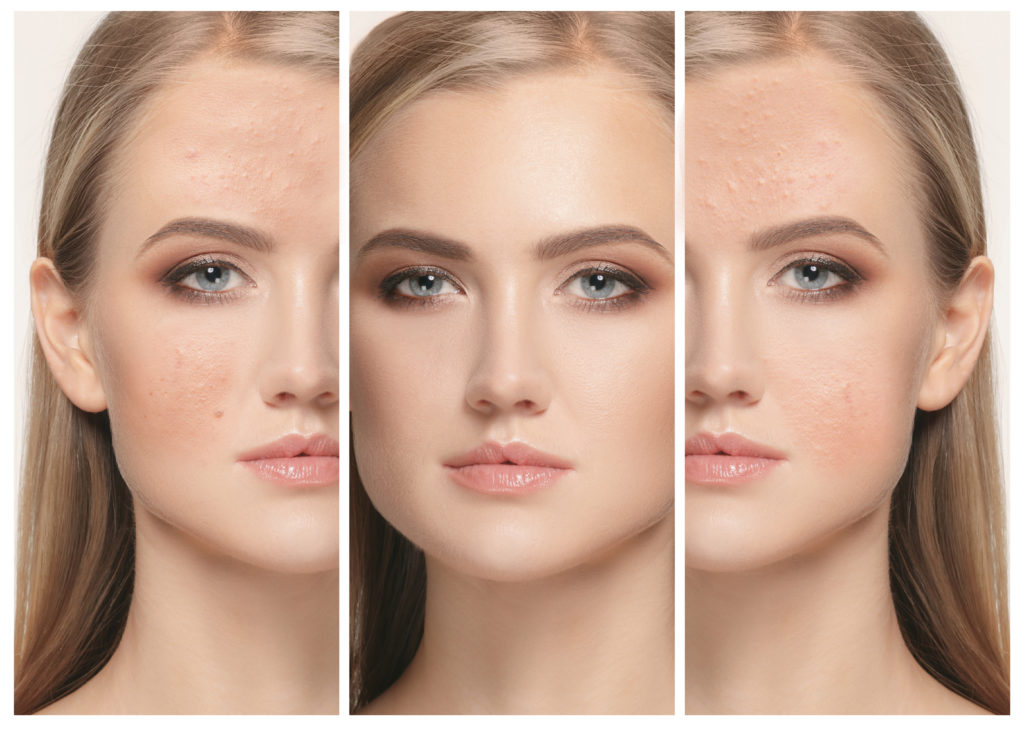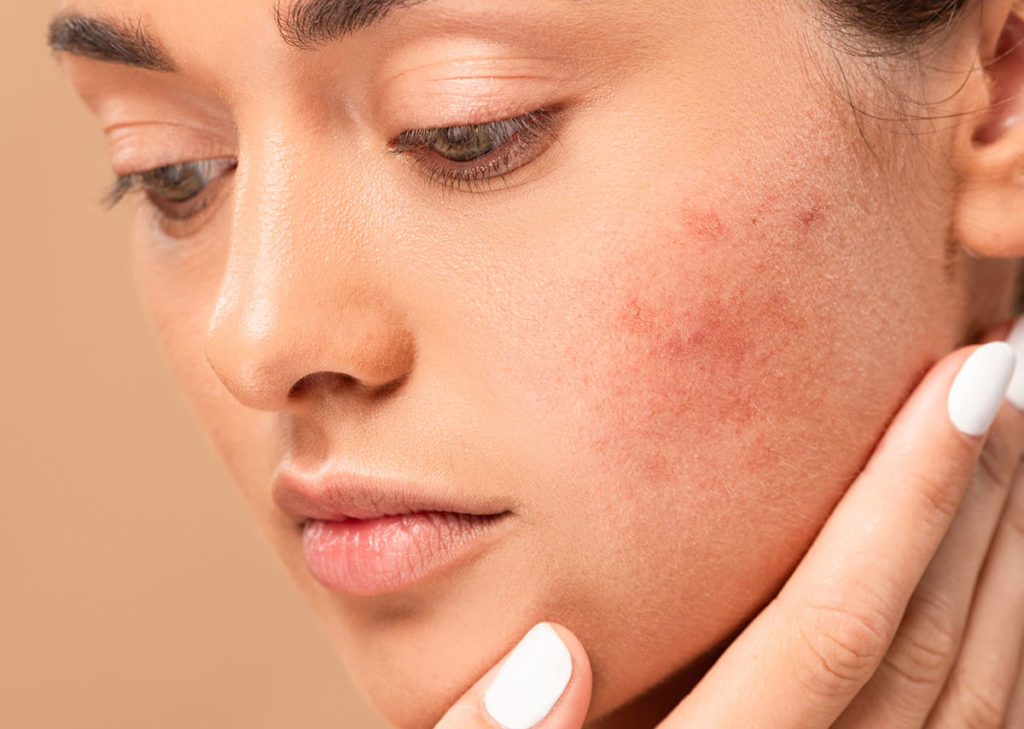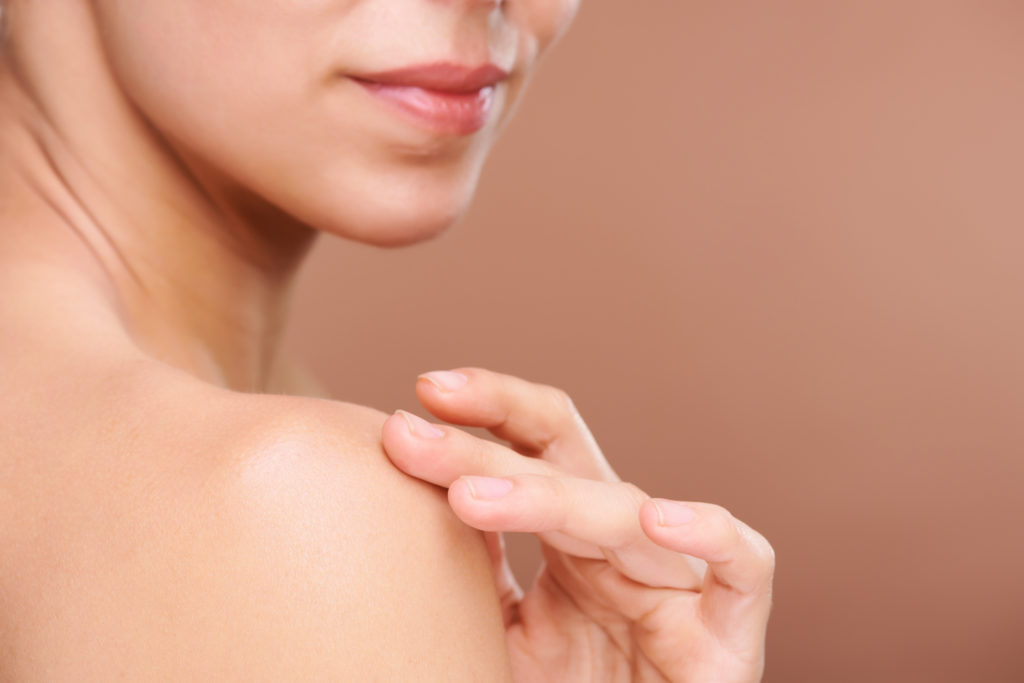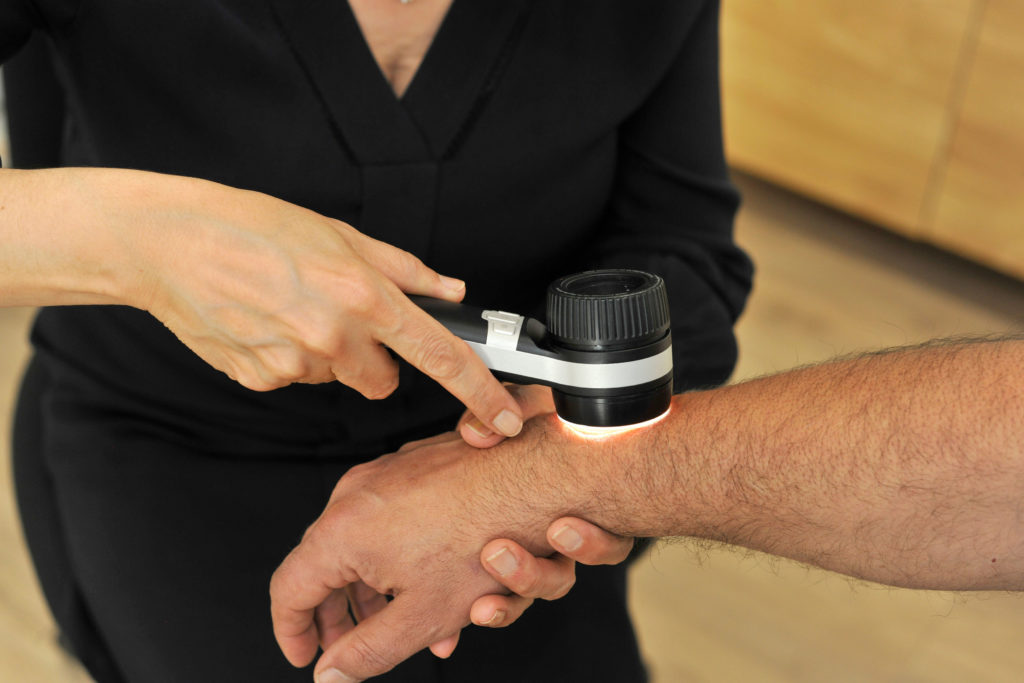Medical Dermatology and Skin Conditions
In our dermatology clinic, we treat a wide range of skin conditions from inflammatory skin disorders, sun-damage and skin cancer management, Disorder of pigmentation e.g. vitiligo, melasma, Hair and Nail concerns, Pediatric dermatology and skin rashes in pregnant women.
Your skin Health and skin wellbeing is our first priority.
Browse some of our dermatology services:
- Acne
- Rosacea
- Eczema
- Psoriasis
- Skin cancer and Skin Check clinic
- Excessive Sweating
- UVB Phototherapy
- Allergic contact dermatitis and Patch Testing
Acne

What is Acne
Acne is an inflammatory skin condition that can affect the face, chest, back and shoulders and sometimes neck and upper arms. It can vary from mild, to moderate and severe. It Commonly affects patients in the teenage years, but it can be seen in younger children or can present as adult acne. The good news is that acne is a treatable skin condition and the treatment regimen needs to be individualised for the best outcome.
Acne treatment
Prescription medications such as antibiotics can be combined with other treatments such as topicals, oral contraceptive pills for female patients, antiandrogen medications comedone extractions, superficial chemical peels, and a good skin care plan.
For severe acne, prescription medication Isotretinoin (brand names Roaccutane/Oratane/Accutane) is a safe and effective treatment.
A good skin care plan is paramount in acne management.
Rosacea

What is Rosacea
Rosacea is a very common and chronic skin condition that affects the face. It usually affects the cheeks, nose, mid forehead and chin (central face) and can co-exist with other conditions such as acne, seborrheic dermatitis and sun-damage. There are different type of Rosacea including:
- erythematotelangiectatis Rosacea presenting with redness, flushing, visible blood vessels.
- Papulopustular rosacea presenting with redness, swelling and acne type pimple and pustules.
- Phymatous rosacea with skin thickness and changed skin texture more prominent on the nose
- Phymatous rosacea with skin thickness and changed skin texture more prominent on the nose
- Ocular rosacea with red and irritated eyes and blepharitis
Rosacea Treatment
Treatment options will include: Sun protection, avoidance of triggers, individualized skin care routine, prescription oral antibiotics and topicals, low does Isotretinon and laser treatment for telangiectasia and redness.
Eczema

What is Eczema
Eczema/atopic dermatitis is characterized by severe itch, redness/inflammation and skin dryness. Most of the time there is a genetic predisposition to get eczema and commonly there is family history or (personal history) of Eczema, asthma and hay fever. Eczema can affect patient of all age categories. Treatment varies depending on the extent and severity of the skin involvement, age and patient’s preferences. There are other types of eczema such as allergic contact dermatitis and irritant contact dermatitis.
Eczema Treatment
General measures for eczema prevention and improvement of the skin barrier including avoidance of triggers and using soap free wash and moisturizer on regular basis. Treatment of the inflamed skin:
- topical corticosteroids, other topical anti-inflammatory treatments such as Pimecrolimus (elidel) cream or Tacrolimus cream or ointment.
- Phototherapy (light treatment)
- Systemic treatments such as antibiotics and systemic corticosteroid for short term control of the inflamed skin and longterm management with immunosuppressant medications.
Psoriasis

What is Psoriasis
Psoriasis is a common and chronic skin condition that can affect the skin, scalp, nails, skin folds and in some patients, the joints. Pathophysiology of psoriasis is complex, and multifactorial with a genetic predisposition and environmental factors playing role in presentation of psoriasis. Unfortunately, there is no permanent cure available for psoriasis.
Psoriasis Treatment
Treatment options include: Topical treatments, phototherapy and for more severe psoriasis systemic treatments including oral tablets and biologics given by injections.
Skin cancer and Skin Check clinic

At the skin check clinic our dermatologists Dr Tahereh Taklif, Dr Matthew Howard and our specialist GP Dr Reza Amirtouri undertake our skin checks. All complicated cases will be discussed with and seen by Dr Taklif.
Patients will not require a referral to see Dr Amirtouri for a skin check.
Mole Check
Regular skin checks are important as new moles and changes to existing mole can be a sign of melanoma. Regular Skin checks either done by yourself, your partner or a doctor can discover suspicious moles on time.
Skin cancer (introduction)
Skin cancer is a common concern in Australia, but fortunately most skin cancers can be treated. Some types of skin cancers are more serious and skin cancer monitoring is important. Full skin checks, self-skin checking, early skin cancer detection and effective sun protection are all important components of skin cancer prevention and management.
Different types of Skin cancers
Skin cancers can be broadly divided into two groups:
- Melanomas that originate from melanocytes and occurs as a result of cancerous changes to the Melanocytes. Early detection and diagnosis of melanoma are associated with a greater chance of survival and in a very high cure rate.
- Non- Melanoma skin cancer that originate from other types of skin cells. The most common forms of Non- Melanoma skin cancers are Basal Cell Carcinomas (BCC), Squamous cell Carcinoma (SCC) and Keratoacanthoma (KA)
Skin Cancer Treatment and Management
Treatment options for skin cancer will depend on the type of skin cancer, size, location and nature of the lesion and includes surgical excision, Moh’s Surgery, and radiation therapy. For low grade skin cancers and precancerous skin lesions treatment options such as: shave and curettage, curettage and cautery, cryotherapy, photodynamic therapy, topical treatment with 5- Fluorouracil or Efudix cream, Imiquimod or (Aldara) cream can be considered.
Sun- spots and sun- damaged skin treatments
Sun damage is one of the most common skin problems that we encounter in Australia. Sun-damage spots can present as dry and rough skin (solar keratosis), redness and prominent capillaries, brown spots (solar lentigines), warty spots (seborrheic keratoses), angiomas(dilated blood vessels presenting as red spots)
Treatment options
We can treat sun-damage skin with a variety of treatment modalities including medical grade chemical peels and Laser, photodynamic therapy, fine wire diathermy and cryotherapy.
Excessive Sweating

Hyperhidrosis
or hyperhidrosis is defined as a degree of excessive sweating that affects activities of daily life. Hyperhidrosis can affect any area of the body, but most commonly affects armpits (axillae), hands and feet (palms and soles).
Hyperhidrosis Treatment
There are some topical treatment options available such as over the counter topical aluminium chloride roll -on or spray or Compounded cream on prescription but may not be effective in more severe cases.
Oral medications can be prescribed by your GP or a dermatologist, but these medications can have side effects.
For primary axillary hyperhidrosis or under arm sweating, Botulinum toxin is a safe and effective treatment and the patients receiving this treatment will be entitled to a Medicare rebate. This treatment is provided at Novus Dermatology & Skin Health. A referral from GP is required.
Other treatment option includes Iontophoresis. For some severe cases the condition may require surgery.
UVB Phototherapy
Narrowband UVB phototherapy delivers a narrow and specific wavelength of ultraviolet light to the skin to treat a number of skin conditions, such as eczema, psoriasis, chronic itch, cutaneous lymphomas and vitiligo. Phototherapy is performed three times weekly for a period of 3 month and for some skin conditions such as vitiligo for up to 6 months and sometimes longer.
Allergic contact dermatitis and Patch Testing
Patch testing is performed at Novus Dermatology to diagnose allergic contact dermatitis. A range of substances, known as allergens, including preservatives, fragrances, dyes etc are included in the Australian baseline series for standard patch test.
